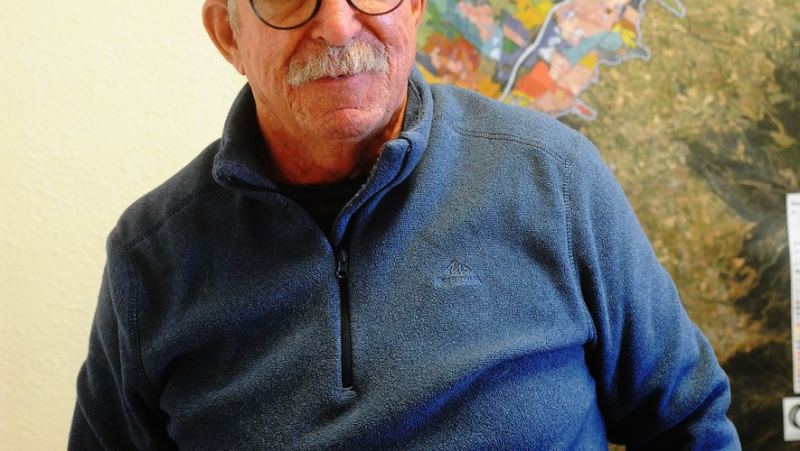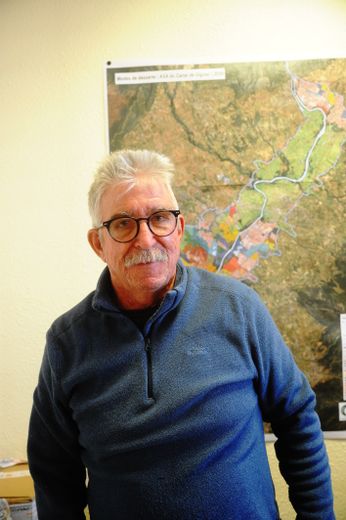When grant payment deadlines are too long for agricultural projects


Jean-Claude Blanc et ses confrères semblent avoir été entendus par la Région. JM – JM
Jean-Claude Blanc, president of the ASA of Gignac, points out the excessively long grant processing times by the Region, a one-stop shop for funding. Delays which result in significant bank charges for structures engaged in projects that are often very financially burdensome. Decryption.
"Europe is often criticized but, in reality, the evil is French,” says Jean-Claude Blanc. And according to the president of the ASA of Gignac, this "bad" has a face: "the French bureaucracy". Cause of his wrath, the delays in processing and disbursement of subsidies collected and delivered by the Region, a one-stop shop for collecting funding from the European EAFRD, the Department, the State… and significant aid* from the Region.
"Triple Punishment"
For the representative of the agricultural structure, engaged in a vast plan to extend and renovate its network for a total amount of more than 15 M€ Excl. tax, the funds "should be transmitted within three months but we wait on average 13 months which results in enormous costs. Even the Department and the water agency, which play the game, have to wait for the one-stop shop to give them the green light to pay their subsidy balance. For us, who self-finance 20% of the amounts, it's a triple penalty."
A risk of loss of subsidies
Because, when the financing programs are completed, "we receive a letter asking us to start work. For example, for the 3SFM extension of the ASA, we must have completed our work by the end of August and the companies must have been paid the full amount even if we do not We have not received all of the subsidies. If I don't meet these deadlines, I lose the grants." Project leaders are therefore forced to advance, in part, the work with cash lines and or short-term loans in addition to their share of the project. self-financing of 20%.
Exponential fees
"But when you’ve been waiting for more than a year, the fees are no longer the same at all. Currently, we have already had subsidies but are still waiting for 1.92 M€ for the end of the project. We cover the difference through short-term loans but every day it costs our members more, it's exponential", deplores the representative of the collective, more than 4& nbsp;000 people in the heart of Hérault. "And this problem that we encounter is also valid for other requests for agricultural subsidies". Ultimately, according to Jean-Claude Blanc, once the fees are paid, the self-financing portion is much greater than the 20% initially planned.
Castidizing a situation "aberrant", the farmer does not hide his anger, "but my members are even more upset than months. Still happy that the bank is following us but it is costing us a lot of money. For us, this is equivalent to two full-time equivalents. We have therefore asked the President of the Region, if it is not possible to respect a minimum payment deadline, to reimburse us for the cash flow costs" . A request that seems heard. (Read box below).
A consultation meeting which provides solutions
Faced with these difficulties, a meeting was organized on Wednesday, in Montpellier, between the Region and the representatives of ASA from Hérault, Gard, and ;Aude and POs. "It was quite stormy because some are in an even more delicate situation than us. But it seems we have been heard", appreciates Jean-Claude Blanc. The community underlines that the Occitanie Region is the one that invests the most in French agriculture. Likewise, the Region has always strongly mobilized in favor of wine growers and farmers. and she "is also strongly mobilized with the ASAs to support the agricultural hydraulic projects they carry out. 150 M€ have notably been released since 2016 in favor of these projects. The Region is therefore obviously sensitive to the difficulties encountered by certain ASAs in paying their aid." In addition, major climatic events have "strongly mobilized the Region's teams in charge of examining files for the establishment and monitoring of emergency funds. To respond to this, the Region has already deployed 5 new reinforcements since 2020. In 2023, the rate of payments has recorded a significant increase, with this trend set to continue." On Wednesday, in Montpellier, several commitments were made: support for part of the additional costs linked to late payments, acceleration of the payment process examination of files and payments, provision of concrete responses to requests made by the ASAs by April 15, the date on which a new meeting will take place.& nbsp;At the same time, the Region wished to point out that the regulatory framework of the European Union, to which it is subject, requires compliance with strict, technical and often lengthy procedures. . A framework that the Region wishes to simplify. Finally, the Region specifies that the 90-day rule does not apply in the case of EAFRD funds.
I subscribe to read more




